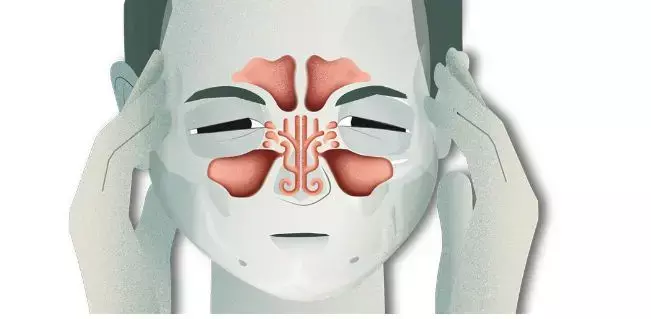- Home
- Medical news & Guidelines
- Anesthesiology
- Cardiology and CTVS
- Critical Care
- Dentistry
- Dermatology
- Diabetes and Endocrinology
- ENT
- Gastroenterology
- Medicine
- Nephrology
- Neurology
- Obstretics-Gynaecology
- Oncology
- Ophthalmology
- Orthopaedics
- Pediatrics-Neonatology
- Psychiatry
- Pulmonology
- Radiology
- Surgery
- Urology
- Laboratory Medicine
- Diet
- Nursing
- Paramedical
- Physiotherapy
- Health news
- Fact Check
- Bone Health Fact Check
- Brain Health Fact Check
- Cancer Related Fact Check
- Child Care Fact Check
- Dental and oral health fact check
- Diabetes and metabolic health fact check
- Diet and Nutrition Fact Check
- Eye and ENT Care Fact Check
- Fitness fact check
- Gut health fact check
- Heart health fact check
- Kidney health fact check
- Medical education fact check
- Men's health fact check
- Respiratory fact check
- Skin and hair care fact check
- Vaccine and Immunization fact check
- Women's health fact check
- AYUSH
- State News
- Andaman and Nicobar Islands
- Andhra Pradesh
- Arunachal Pradesh
- Assam
- Bihar
- Chandigarh
- Chattisgarh
- Dadra and Nagar Haveli
- Daman and Diu
- Delhi
- Goa
- Gujarat
- Haryana
- Himachal Pradesh
- Jammu & Kashmir
- Jharkhand
- Karnataka
- Kerala
- Ladakh
- Lakshadweep
- Madhya Pradesh
- Maharashtra
- Manipur
- Meghalaya
- Mizoram
- Nagaland
- Odisha
- Puducherry
- Punjab
- Rajasthan
- Sikkim
- Tamil Nadu
- Telangana
- Tripura
- Uttar Pradesh
- Uttrakhand
- West Bengal
- Medical Education
- Industry
Low dose Azithromycin effective in refractory chronic rhinosinusitis: Study

The pathophysiology of this refractory CRS population remains unclear, which has stagnated the development of effective targeted therapies. Azithromycin, along with other macrolides, has been proposed as an adjunct anti-inflammatory agent in the management of CRS. Given the contradictory results obtained in clinical trials, the role of azithromycin in CRS patients is unclear. Hence, its use in more targeted populations such as refractory CRS remain completely unexplored.
Used for its anti-inflammatory, immunomodulatory, and antibacterial effects in cystic fibrosis and chronic obstructive pulmonary disease, assessing its effect on the sinonasal microbiome may prove useful in better understanding CRS.
According to recent research findings, a 4‐month course of 250 mg of azithromycin 3 times weekly in patients with refractory CRS significantly decreases S. aureus abundance in the sinonasal microbiome. Findings have been put forth in the International Forum of Allergy & Rhinology, Annual ARS Meeting on September 13‐14, 2019.
This study, attempted to assess changes in the sinonasal microbiome after a 4‐month course of low‐dose azithromycin. Researchers designed a double‐blind, randomized, placebo‐controlled trial including 48 adults with refractory chronic rhinosinusitis (CRS). Individuals were assigned randomly to 250 mg of azithromycin or placebo 3 times weekly for 4 months. The data showed that, in patients with refractory CRS, a 4‐month course of 250 mg of azithromycin 3 times weekly significantly lowers S. aureus abundance in the sinonasal microbiome. Azithromycin may constitute an additional therapeutic option to help control refractory CRS considering the pathogenic role of S. aureus in this disease.
The sinonasal microbiome is believed to play an important role in the pathophysiology of refractory chronic rhinosinusitis (CRS). The team evaluated changes in the microbiome following a 4‐month course of low‐dose azithromycin. Assessing microbiome alterations following such a treatment may help identify underlying mechanisms of this drug.
For the study design,a total of 48 adults with refractory CRS were enrolled in a double‐blind, randomized, placebo‐controlled trial. Patients were randomized to 250 mg of azithromycin or placebo 3 times weekly for 4 months. During this time, daily budesonide saline irrigations were continued. Sinonasal swabs were collected by endoscopically‐assisted method prior to treatment initiation and at the end of it, and sent for 16S ribosomal RNA gene sequencing. High‐resolution ANCHOR pipeline was used to infer and annotate putative species. The 2 patient groups were compared using DESeq2 differential abundance analysis.
Data analysis revealed some interesting facts.
- From initiation to the end of azithromycin treatment, patients showed a significant difference in beta diversity analysis (p = 0.0004) along with a significant decrease in 71 different operational taxonomic units (OTUs) of Staphylococcus aureus (false discovery rate [FDR] < 0.05) obtained from the differential abundance analysis.
- This was not observed in placebo‐treated patients. By the end of treatments, azithromycin‐treated patients had a significant decrease in 29 different OTUs of S. aureus (FDR < 0.05) when compared to placebo.
"Considering the pathogenic role of S. aureus in the refractory CRS population, azithromycin may constitute an additional therapeutic option to help control this disease."the team concluded.
For full article follow the link: https://doi.org/10.1002/alr.22653
Primary source: International Forum of Allergy & Rhinology
Dr Satabdi Saha (BDS, MDS) is a practicing pediatric dentist with a keen interest in new medical researches and updates. She has completed her BDS from North Bengal Dental College ,Darjeeling. Then she went on to secure an ALL INDIA NEET PG rank and completed her MDS from the first dental college in the country – Dr R. Ahmed Dental College and Hospital. She is currently attached to The Marwari Relief Society Hospital as a consultant along with private practice of 2 years. She has published scientific papers in national and international journals. Her strong passion of sharing knowledge with the medical fraternity has motivated her to be a part of Medical Dialogues.
Dr Kamal Kant Kohli-MBBS, DTCD- a chest specialist with more than 30 years of practice and a flair for writing clinical articles, Dr Kamal Kant Kohli joined Medical Dialogues as a Chief Editor of Medical News. Besides writing articles, as an editor, he proofreads and verifies all the medical content published on Medical Dialogues including those coming from journals, studies,medical conferences,guidelines etc. Email: drkohli@medicaldialogues.in. Contact no. 011-43720751


